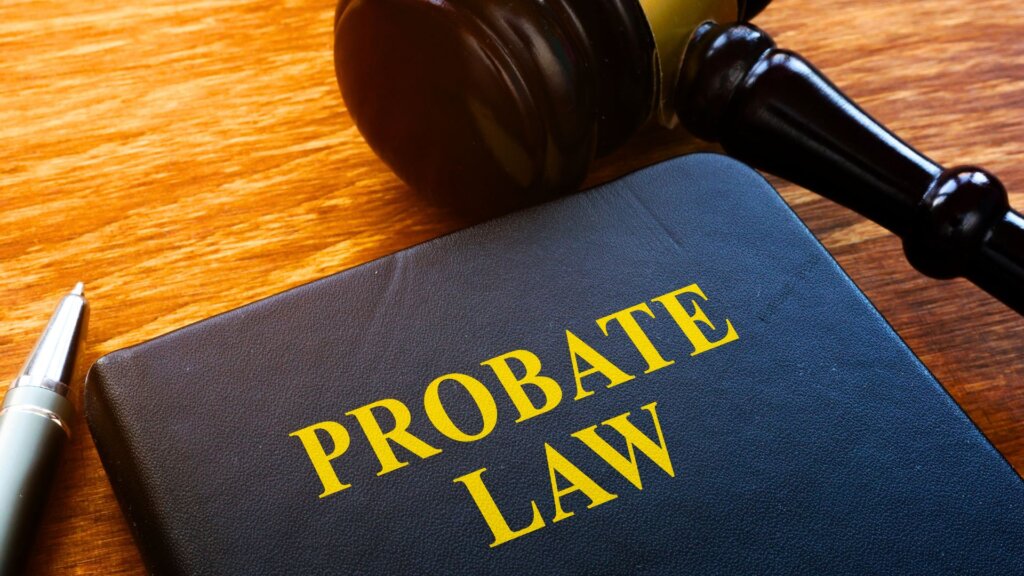
Dealing with probate can be a long and frustrating process, especially if you’re hoping to sell an inherited property during that time. In our latest post, learn how to avoid probate court in Northwest Georgia and make the process a little less stressful for your loved ones.
When someone you love passes away, the last thing you want to deal with is legal red tape. Unfortunately, that’s exactly what probate can feel like: a complicated, drawn-out process at a time when your focus should be on healing and supporting your family. The good news is, with a little planning, probate isn’t something you always have to go through.
Let’s walk through why avoiding probate in Northwest Georgia can save you time, money, and stress, and how to do it.
Why So Many Families Want to Avoid Probate in Northwest Georgia
Probate isn’t just paperwork. It often comes with a long list of expenses, like attorney fees, court costs, appraisal fees, and sometimes even executor fees. While many executors will waive their fee out of fairness to the rest of the family, the financial burden can still add up quickly.
Beyond the cost, probate can be emotionally draining. It takes time to notify all heirs, settle any outstanding debts, file court documents, and finally distribute what’s left to the beneficiaries. Even straightforward cases can take months, and more complex ones might drag on for over a year.
That’s a long time to wait if you’re trying to move on, sell a property, or settle the estate.
Using a Trust to Keep Assets Out of Probate
One of the most reliable ways to avoid probate is by creating a living trust. Think of a trust as a secure bucket where you place the assets you want to pass on; things like your home, bank accounts, or valuable heirlooms.
As long as the trust is set up while the person is of sound mind, they can decide what goes into it and who the beneficiaries will be. When they pass away, those assets are distributed directly to the named individuals, bypassing the court system entirely.
This not only avoids probate but also keeps things more private, since trusts don’t go on public record like wills do.
How Joint Ownership Can Bypass Probate
If a property is jointly owned and includes what’s called the right of survivorship, then ownership automatically transfers to the surviving person when one owner passes away. No court needed.
This setup is common between spouses or business partners and should ideally be established when the property is first purchased. While it’s possible to add someone to the deed later, doing so might involve legal fees or taxes, so it’s smart to plan ahead if this is the route you want to take.
Naming Beneficiaries on Key Assets
You’ve probably already done this without even realizing it. Bank accounts, life insurance policies, and retirement funds usually have a beneficiary designation built in. If you’ve listed someone to receive those funds when you pass away, those assets won’t go through probate; they’ll go directly to that person.
Just be sure to keep those designations current. A lot of people forget to update them after major life changes like a divorce, remarriage, or the passing of a loved one. If you don’t update them, your ex might end up with your life insurance, or worse, the asset could be forced into probate anyway.
Some states even allow a transfer-on-death (TOD) deed for real estate, which works the same way. It lets you name someone to receive your home when you pass, avoiding court involvement altogether.
Gifting Assets Before You Pass Away
Another way to avoid probate is by giving away assets while you’re still alive. This can be as simple as gifting valuable items or money to your children, family members, or friends.
In many cases, you can gift up to a certain amount each year (currently $17,000 per person) without triggering any federal tax penalties. By giving away these assets now, they won’t be counted in your estate when you pass away, which means they won’t get tied up in the probate process.
This approach can also be incredibly meaningful. You get to see your loved ones enjoy the gift during your lifetime, whether it’s a down payment on their first home or a treasured family heirloom.
Why Probate Might Not Be Necessary for Smaller Estates
Some estates in Northwest Georgia might be small enough to avoid probate altogether. If the total value of the estate falls under a certain threshold, you may be able to go through a simplified probate process or skip it entirely.
Georgia allows for a small estate affidavit when the estate is less than $10,000 and there’s no will. However, even if the estate qualifies as small, it’s always best to check with a local probate attorney or legal expert to understand the process and requirements fully.
How Cash Buyers Can Help If Probate Is Already Involved
If probate is already underway and there’s real estate involved, you still have options. Cash home buyers can be incredibly helpful in these situations. They understand how probate works, can work directly with your attorney, and are used to navigating these complicated timelines.
Instead of listing the home, waiting for a buyer, and dealing with inspections or lender delays, a cash buyer can purchase the home as-is, on your schedule. This can be a huge relief if you need to settle the estate quickly or don’t want to deal with additional stress while grieving.
We Are Home Buyers Can Support You
If you’ve recently inherited a property in Northwest Georgia or know you’ll be dealing with a loved one’s estate soon, our team is here to help. At We Are Home Buyers, we specialize in working with families who are going through probate or hoping to avoid it entirely.
We’ve walked this road with other Northwest Georgia families, and we understand how personal and overwhelming it can feel. Whether you need advice, a quick sale, or just someone to answer your questions, we’re ready to help however we can.
Let’s Take the Stress Out of Probate
Avoiding probate in Northwest Georgia isn’t just about saving time and money. It’s about protecting your loved ones from extra stress during an already difficult time. Whether you’re planning ahead or currently navigating probate, know that you don’t have to do it alone.
Have questions about avoiding probate or selling an inherited home? Reach out to our team at We Are Home Buyers today. We’re here to help you find clarity, peace of mind, and the right next step forward.
Northwest Georgia Probate FAQ
Can I really avoid probate entirely in Northwest Georgia?
Yes, with the right planning. Trusts, joint ownership, and named beneficiaries are all legal tools that allow you to pass on assets without court involvement.
What types of assets do not go through probate?
Assets with named beneficiaries, assets in a living trust, jointly owned property with survivorship rights, and gifts given before death can all bypass probate.
How long does the probate process usually take?
In Georgia, the probate process typically takes anywhere from six months to over a year, depending on the size and complexity of the estate.
Is probate always required in Georgia if someone passes away?
Not always. If the person had minimal assets, no real estate, or had already transferred ownership through other means, probate may not be necessary.
Can I sell a house before probate is complete?
Usually, no. In most cases, you’ll need court approval before selling a home that’s tied up in probate. However, cash buyers can still make an offer and wait for the legal green light.
What should I do if I’ve already started probate but want help selling the property?
Reach out to a reputable cash buyer in Georgia who’s familiar with probate timelines and requirements. They can help streamline the sale and reduce the stress involved.
